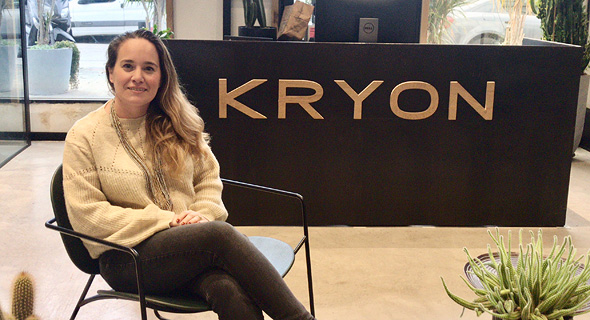Tech@Work
High demand for tech talent has put Israeli job seekers back in the driving seat
HR executives say the market today is similar to what it was prior to the pandemic, with applicants demanding high salaries and the ability to work from home
“At a time that the market is extremely competitive and the recruitment process is mostly done online, it is challenging to get people to commit to the process and the company’s organizational culture,” said Daniel Arbel, talent acquisition partner at cyber intelligence company IntSights. “Recently we’ve encountered new trends such as ghosting, people who disappear all of a sudden or decline to carry out home assignments, or people who ask to work from home as part of their employment conditions.”
 An employer interviews an applicant via Zoom. Photo: Shutterstock
An employer interviews an applicant via Zoom. Photo: Shutterstock Hagit Tenne- Pereg, VP of HR at Otonomo, said that from her perspective the tech sector has gone back to the way it was prior to the pandemic. “Over the past year, and particularly the first half of it, it felt like the employment market was stagnant. There was a lot of uncertainty, potential employees were afraid to leave their current jobs and start elsewhere because no one knew what would happen. Candidates who had scheduled interviews canceled at the last minute and the companies themselves were cautious in their recruitment efforts. Recently, we witnessed many companies raising capital and investment rounds, which in turn increased demand for employees, resulting in the job market going back to its pre-pandemic days. We are currently recruiting for all departments and can sense the competition increasing as the months go by.”
The figures back up the HR executives’ feelings that the competition over tech talent has returned with a vengeance. According to Paule Tzuker, the CEO of the Nisha Group, which specializes in tech positions, the number of available positions in the tech sector has gone back to January 2020 figures. “In April the number of open positions was down by 60% and it slowly began climbing back from there. The market has once again become a candidate’s market and the demands reflect that.” The two dominant trends that are emerging are candidates’ preference for companies that offer flexibility and demand that salaries be increased by 10-15% on average.
- VidMob set to hire dozens of Israelis following new $50 million funding round
- Battle over tech recruits gets explosive: company asks applicants to dismantle a bomb
- Which tech jobs will land you the highest salaries in Israel?
Michal Gershon-Sobol, VP of global HR at Kryon, said that salary demands have gone up both locally and internationally. “Talented candidates have multiple offers and opportunities at any given time. The high supply levels force employers to remain attractive both in terms of salaries and flexibility. I think the hybrid work model is here to stay and it has the benefit of enabling people who live in remote areas to integrate into the industry which is concentrated in the center of the country.”
 Michal Gershon-Sobol. Photo: Kryon
Michal Gershon-Sobol. Photo: Kryon



